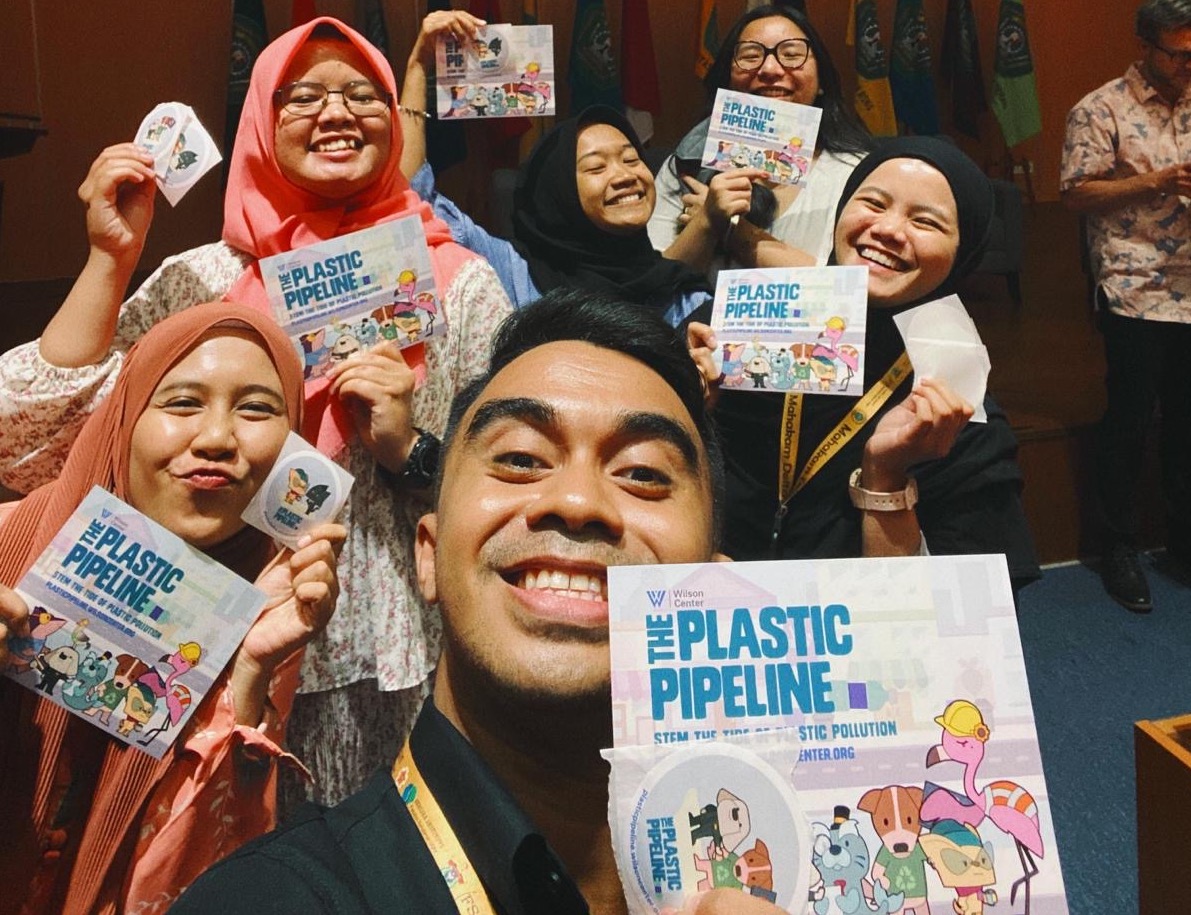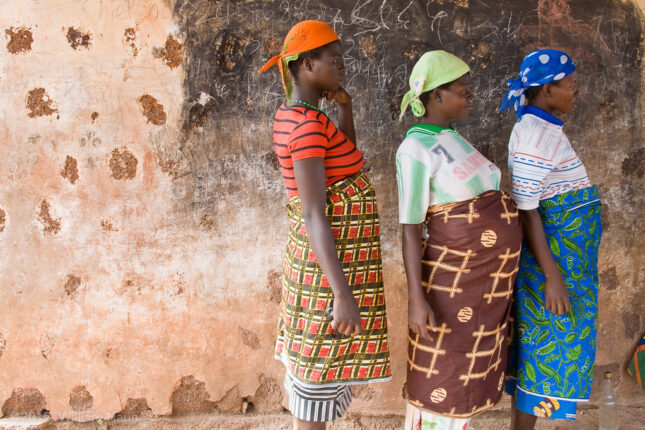-
ECSP Weekly Watch: April 15 – 19
›
UNFPA’s State of World Population 2024 Report Highlights SRHR Inequalities (UNFPA)
Over the last 30 years, the world has made immense progress in improving sexual and reproductive health and rights (SRHR) for women and girls around the world. Since 1994, when governments agreed that SRHR was a cornerstone of international development at the Cairo International Conference on Population, rates of unintended pregnancies have fallen 20%, 162 countries have adopted anti-domestic violence laws, and maternal deaths have decreased by 34%.
-
The Power of Play with The Plastic Pipeline
›During a visit to Vietnam in November 2023, I cringed as my aunt tossed our now empty bánh mì plastic bag onto the sidewalk. “It doesn’t really matter,” she shrugged, “there aren’t any nearby trash cans anyway.” Finding a trash can wouldn’t have helped much, as two-thirds of Vietnam’s plastic waste ends up burnt, landfilled, or leaked.
-
Humanity Beyond Borders
›
“The health care challenges faced by refugees and displaced people are complex and multi-dimensional,” said John Thon Majok, Director of the Wilson Center’s Refugee and Forced Displacement Initiative (RAFDI). “This requires not only understanding the drivers of displacement but also analysis of the barriers to healthcare as well as innovative ways to address them.”
-
Beyond Complicity, Obstruction and Geopolitics: Military Forces and Climate Security
›
The contentious and ambiguous entanglement that military forces have with their natural environment inevitably sparkles public interest and academic research. So how does the existing scholarly work inform our assessment of this convergence?
-
Thought-leaders and Frontline Workers in Environmental Peacebuilding: An Oral History | Dr. Erika Weinthal
›Environmental Peacebuilding Oral History // New Security Broadcast // April 12, 2024 // By Wilson Center Staff
Today’s episode of New Security Broadcast is hosted by ECSP in collaboration with the Environmental Peacebuilding Association as part of a special series: “Thought-leaders and Frontline Workers in Environmental Peacebuilding: An Oral History.” The series features interviews with academics, practitioners, and frontline workers to trace the history and evolution of the field of environmental peacebuilding.
-
ECSP Weekly Watch | April 8 – 12
›
A window into what we are reading at the Wilson Center’s Environmental Change and Security Program
Cholera in Southern Africa Linked to Climate Threats (The New Humanitarian)
In Southern Africa, climate change is encouraging rural-to-urban migration that is also creating a public health crisis. Cholera outbreaks have infected 188,000 Southern Africans since 2022, with 4,100 deaths. Zambia currently faces the harshest impacts, with 705 reported deaths and 21,000 infections since October. Its president, Hakainde Hichilema, even called for citizens to move out of cities to prevent the spread of cholera in January—largely due to increasing concern of the diseases’ spread in informal settlements.
-
Green Collaboration: International NGOs and Chinese Partners Promoting Sustainable Overseas Investments
›China Environment Forum // Guest Contributor // Vulnerable Deltas // April 11, 2024 // By Elizabeth Planton, Wendy Leutert & Austin Strange
Around 8.5 million pangolins are estimated to have been trafficked from Africa between 2014 and 2021, with many ending up in China
In March 2019, the World Wide Fund for Nature (WWF) and China’s National Forestry and Grassland Administration co-hosted two workshops on reducing wildlife trafficking in Kenya and Botswana. These workshops, supported by the Chinese embassies in Nairobi and Gaborone, attracted over 200 Chinese nationals working for state-owned or private companies in the two countries. During the workshops, the international nongovernmental organizations (INGOs) and Chinese government officials expressed their shared goal of reducing the illegal trade of products from rare and endangered African species to China, one of the world’s largest markets for trafficked wildlife products.
-
International Day for Maternal Health and Rights: Promoting the Right to Health for Pregnant People Globally
›
April 11 is the International Day for Maternal Health and Rights. Globally, 800 women die each day from preventable causes due to pregnancy and childbirth. Improving maternal health outcomes and preventing maternal deaths requires a human rights-based approach that protects a person’s right to survive childbirth, to access high-quality health care, to government accountability, to equity and non-discrimination when accessing care, and to family planning and contraception. Enshrining these rights for all pregnant people is key to meaningful progress towards the prevention of maternal deaths globally.
Showing posts from category *Blog Columns.










